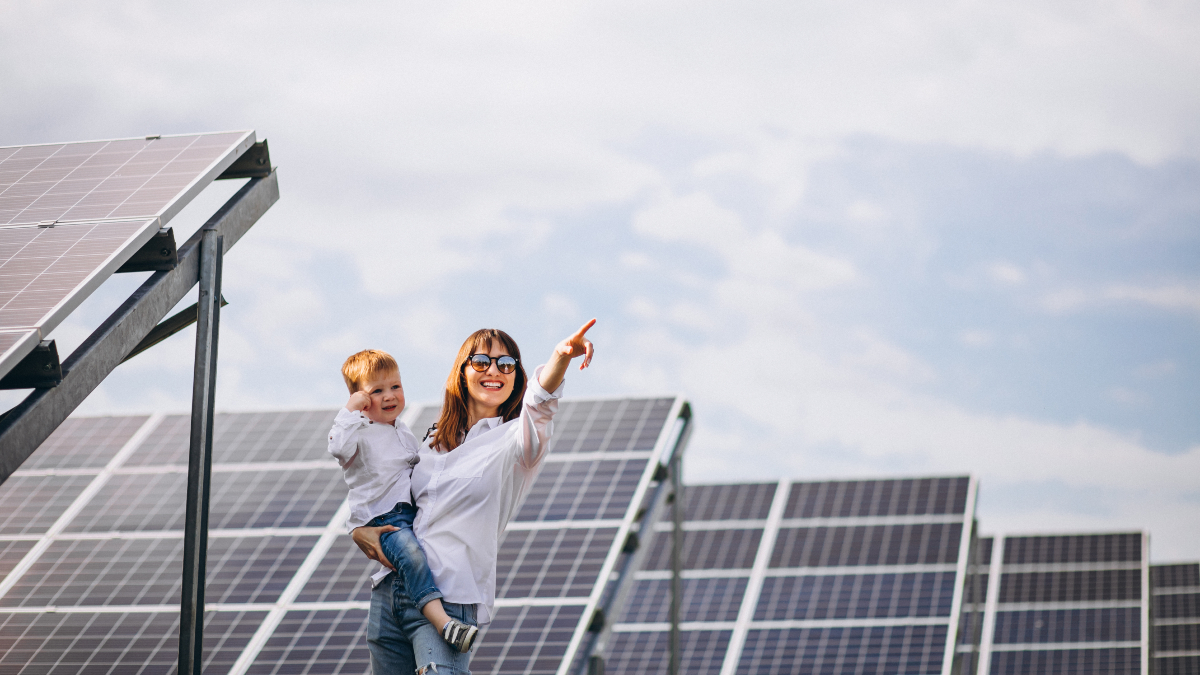The solar energy industry has been growing rapidly over the last decade. With solar panels becoming cheaper and more efficient, solar power is a viable option for many homeowners. This blog post will be discussing some of the major benefits of using solar energy.
Solar energy is sustainable and renewable
One of the primary benefits of solar power is that solar energy comes from the sun, which is a renewable source of energy. Since solar panels only use sunlight to create electricity, there are no fuels or emissions created by solar cells like traditional sources of energy such as coal and natural gas. In case you are thinking of having solar panels installed in parallel to getting a new roof, make sure that you only consider going for the services of a GAF energy certified roofer. They are the ones who are in the best position to assist you in installing solar panels along with a new roof.
Solar panels reduce greenhouse gases
Another benefit to solar energy is how it reduces greenhouse gases. Since solar cells don’t create any emissions, solar power reduces the total amount of greenhouse gases in the atmosphere. Solar panels also do not require fossil fuels like coal and natural gas to produce energy, which is another benefit when considering solar power for your home. Because of this, you will be able to help the environment and save money in the long run.
As you can see, there are many benefits associated with using solar energy at home. If you are looking at solar power as an option for your home, make sure to talk with a solar energy company first. There might be federal or state incentives available that will help offset the cost of solar panels and installation on your roof.
Cost-effectiveness
Solar power plants are cheaper to build than conventional power plants because they use fewer materials such as steel and concrete for construction. Homeowners who install a solar panel system can save up to $1,000 per year in utility costs if their home uses 10 kilowatts of electricity each day or more. True enough, you may need to shell out a hefty sum upfront to purchase solar panels and solar panel installation costs. However, solar energy is more affordable in the long run because no other maintenance or fuel costs are needed once your system has been installed correctly.
For instance, your electric energy bill may be a little higher than normal after solar panels have been installed, but you will not need to pay for electricity from an electric company anymore. In addition, solar power systems can last up to 30 years with proper care and maintenance. The solar panel installation cost is also recuperated over time as the system generates free energy that can be saved or used immediately.
In addition to being cheaper than conventional power plants, solar cells have a lower operational cost per kilowatt-hour generated which results in less pollution from coal-fired power plants. Solar panels also do not emit carbon dioxide or other harmful pollutants, which makes solar energy very attractive to poorer countries with high populations of people who are vulnerable to the effects of pollution on human health and ecosystems. As you can see solar cells have many different advantages that help make them a worthwhile investment for anyone willing to take the time to research solar energy and solar panels.
Industrial Growth
The solar PV industry is growing rapidly, with an average growth rate of 40% per year since 2002. Several countries have achieved relatively high levels of solar power penetration, including 30% in Italy and 20% in Spain. Solar energy can be used during the day to create electricity for use at night. This helps solar power plants to produce electricity 24 hours a day and reduce the amount of solar energy storage needed. Solar PV is also capable of producing up to 100% of the solar cells’ rated solar power (rated power) in some cases, and works at high temperatures, making them suitable for use in hot climates like those found around desert areas.
If you are looking for a sustainable, renewable energy source that has the potential to reduce your dependence on fossil fuels like oil, coal, and natural gas then solar power is worth consideration. Solar panels produce no harmful emissions so they offer an environmental benefit as well. Homeowners who install a solar panel system can save up to $1,000 per year in utility costs if their home uses 10 kilowatts of electricity each day or more which means it pays for itself within 7 years. These are only some of the major benefits that you can garner from the use of solar energy.

